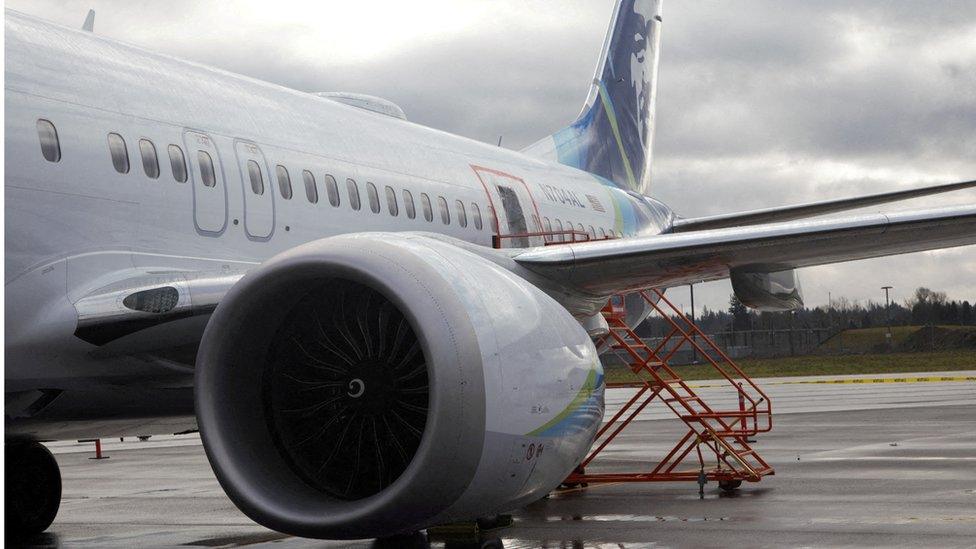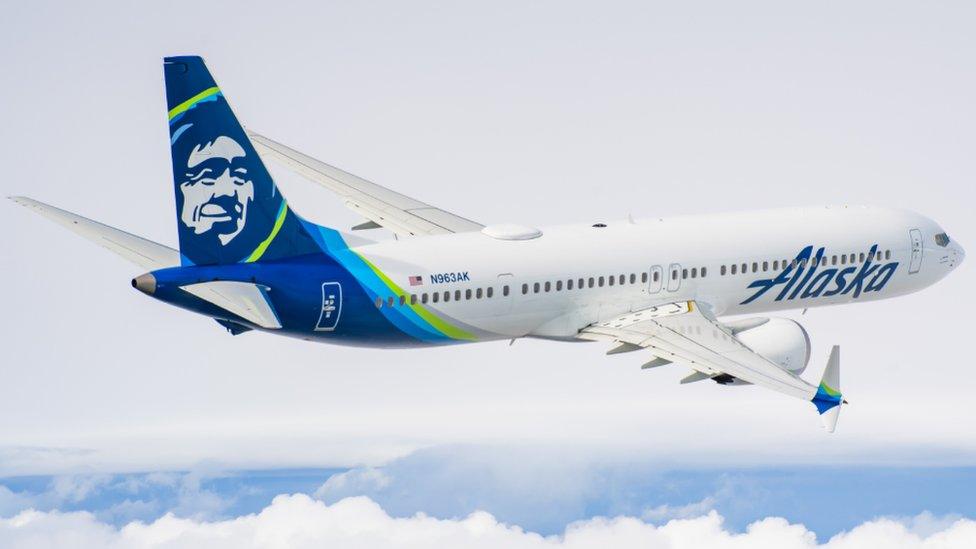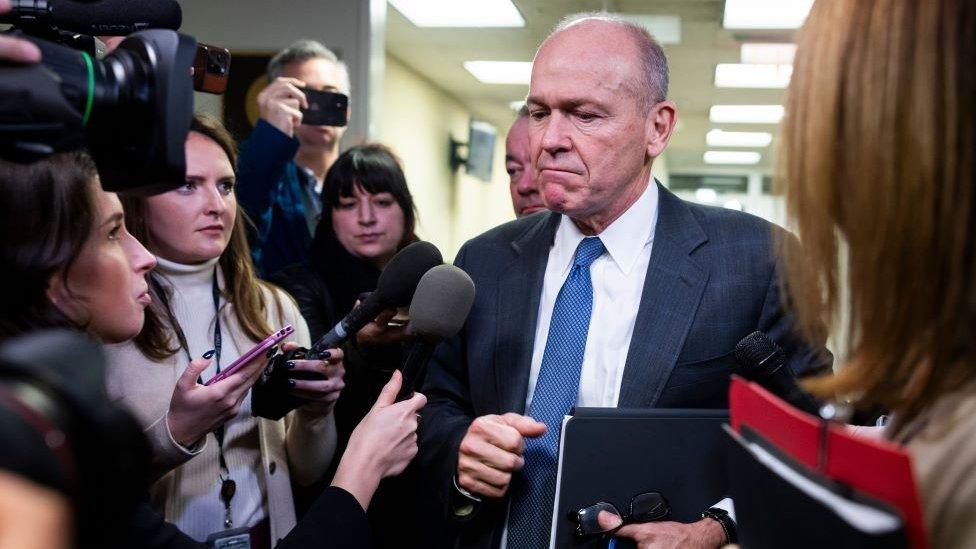Boeing chief admits 'serious challenge' ahead
- Published

Boeing faces a "serious challenge" and uncertain outlook as it seeks to restore confidence, its boss Dave Calhoun admitted, announcing the firm's latest financial results on Wednesday.
Trust in the firm has been shaken since a panel of one of its 737 Max 9 jets broke off in mid-air.
The incident has renewed questions five years after two fatal accidents on another version of its planes.
Mr Calhoun has been trying to show the firm is taking the situation seriously.
On a call with financial analysts, he apologised and said the company took responsibility, no matter what the ongoing formal investigation into what caused it concluded.
"We caused the problem and we understand that," he said. "We simply must do better."
The quarterly update to investors is the company's first since the accident on the Alaska Airlines flight, which terrified passengers and forced an emergency return to the Portland, Oregon airport that occurred without serious injury.
Mr Calhoun has previously blamed it on a "quality escape".
Reports suggest that the panel was improperly installed when the plane left Boeing's factory.
It has prompted new scrutiny of the company's manufacturing record, which critics say has suffered as the firm pushed to cut costs and speed deliveries.
The Federal Aviation Administration (FAA) has launched an investigation of Boeing's manufacturing process and barred the firm from expanding production of its popular 737 Max planes.
Some of the company's biggest airline customers have also expressed concerns, noting that the issues may delay approval of new versions of the 737 Max plane, the Max 7 and Max 10, that are in the works.
Mr Calhoun said the company would defer to regulators.
"I know these moments that can impact delivery schedules can frustrate our customers and investors but quality and safety must come before all else," he said.
"We are going to go slow to go fast and we will encourage and reward employees for speaking up to slow things down if that's what needed," he said.
On the call with investors, Mr Calhoun limited his prepared remarks to the company's response to the Alaska Airlines emergency.
The company also said it would not offer formal financial guidance for the 2024 year.
"While we often use this time of year to share or update our financial and operational objectives, now is not the time for that," Mr Calhoun wrote in a letter to staff that accompanied the results.
Analysts pressed Mr Calhoun about what the turmoil would mean for the company in the years ahead, with one questioning how the lapse could have occurred after the spotlight that was cast on the company after crashes in 2018 and 2019 involving another version of its 737 Max plane killed 346 people.
The issues have hit the company's shares which tumbled 20% at one point.
The Rhode Island treasurer on Tuesday filed a proposed class-action lawsuit on behalf of shareholders, accusing the company of continuing to prioritise "profits over safety" after those accidents, despite public promises to the contrary.
Boeing declined to comment on the lawsuit.
Among airline safety campaigners, the emergency has sparked calls for new leadership and the ouster of Mr Calhoun, who has served on the board since 2009 and was installed as chief executive after the earlier crashes.
"They had their chance. They failed. They are unable or unwilling to do the task and should leave," said Michael Stumo, whose daughter was killed in the Ethiopia Airlines Boeing 737 Max 8 crash and has now become a vocal airline safety advocate.
The investor update for the September to December period showed the manufacturing giant was currently producing 737 planes at a rate of 38 a month.
Revenue rose 10% to $22bn, while the company's losses in the quarter narrowed to $283m.
Related topics
- Published14 January 2024

- Published24 January 2024
